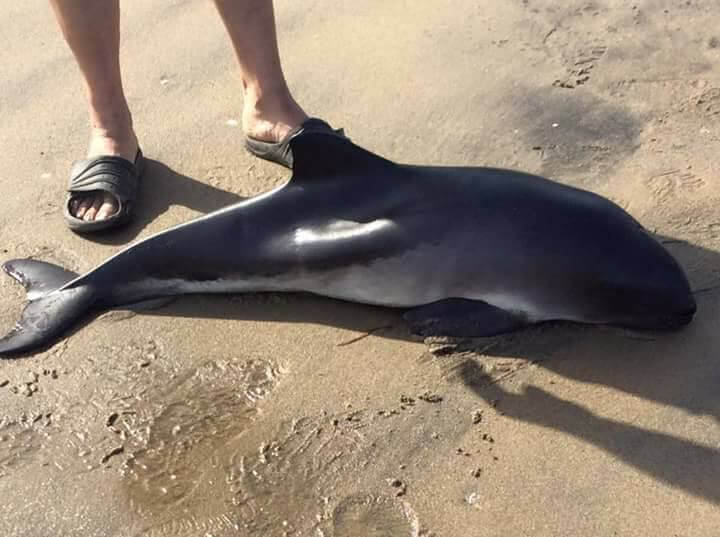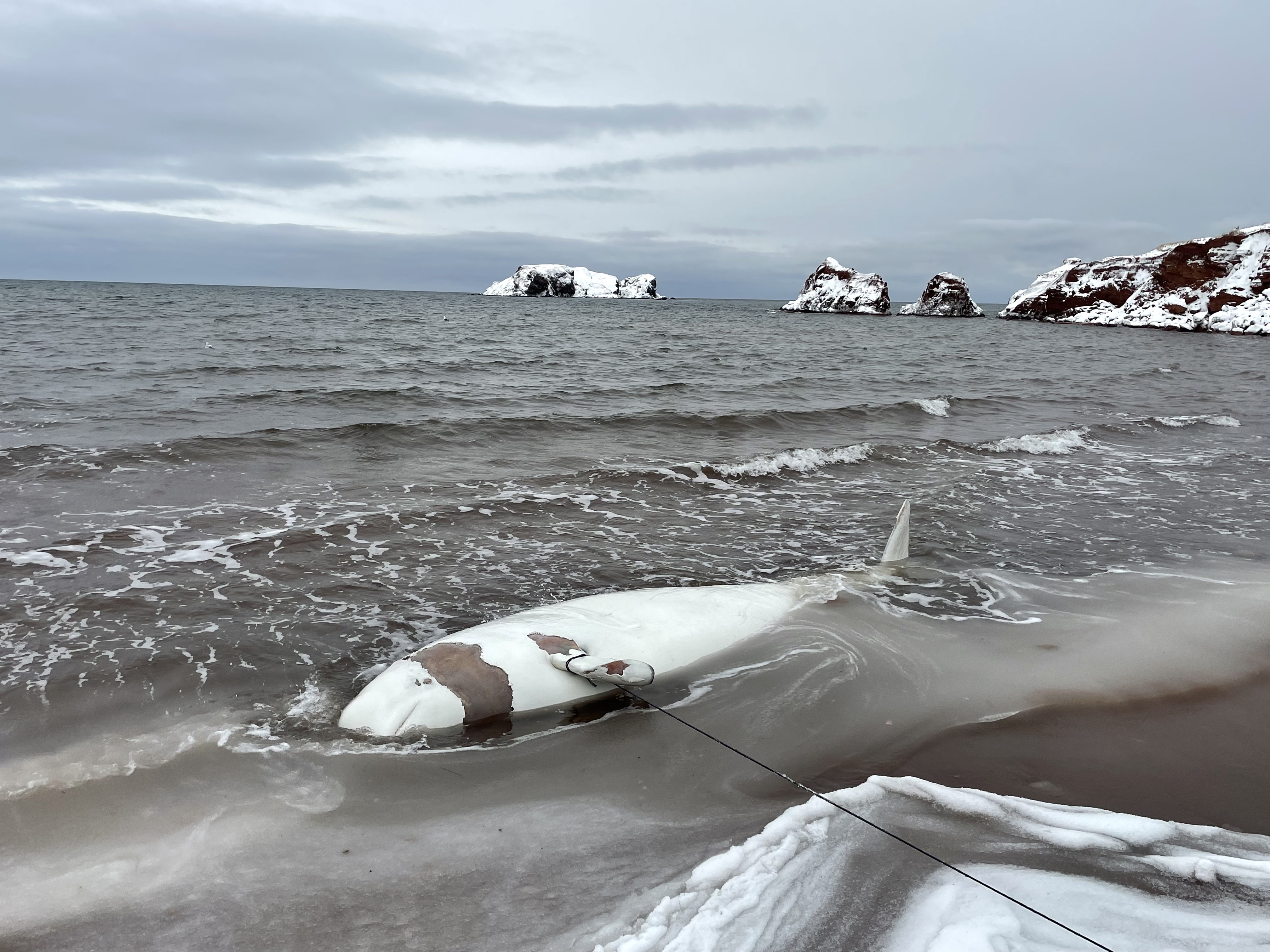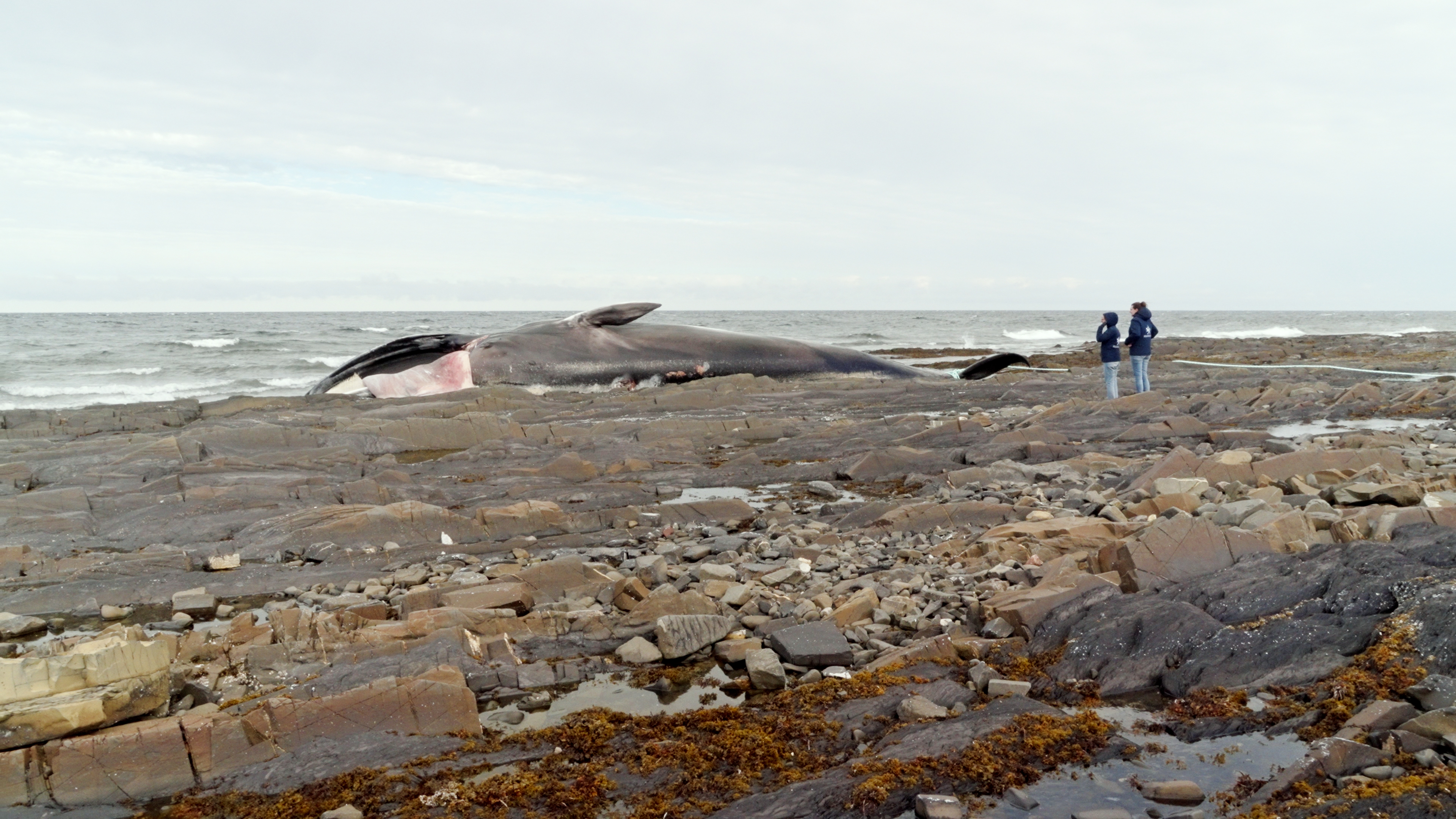Last August 29, a mother and daughter found a live harbour porpoise stranded on the beach in the town of Maria (Gaspé Peninsula) and took the initiative to push it back into the water. Their gesture went viral on social media. The outcome of the rescue attempt is unknown, but the next day a similar incident occurred about thirty kilometres away in Bonaventure. Again, it was a beached harbour porpoise, also alive. It died a few minutes after being found. It is unknown, however, whether or not it was the same animal!
On September 15, it was a live pilot whale that was found stranded on a beach in the Magdalen Islands. Once again, a group of citizens undertook a series of attempts to return the animal to water before the arrival of a volunteer team from the Marine Mammal Emergency Response Network.
Although one’s immediate intuition might be to want to help an animal in distress, returning a cetacean to the water is no trivial matter, and can sometimes cause more harm than good. The first step of any intervention is an assessment of the situation by specialists. This is one of the reasons why this practice is prohibited by law unless an expert evaluation has been performed first. The Marine Mammal Emergency Response Network was established in 2004 to develop a set of appropriate responses to such situations. The Network’s mandate is to organize, coordinate and implement measures aimed at reducing accidental mortality of marine mammals, rescuing marine mammals in difficulty, and facilitating data acquisition from beached or drifting carcasses in St. Lawrence waters within Quebec’s jurisdiction.
What if a small whale is found stranded alive?

By definition, a cetacean is considered “stranded alive” if it is touching the ground, has stopped floating and can no longer move about freely. Whales can become beached due to post-injury illness or simply following a navigational error. Being mammals, whales can sometimes survive for a rather long time out of water.
A witness who finds a whale in this state may observe the animal from a distance, but should definitely not intervene him- or herself. These are large wild animals whose behaviour can be unpredictable, especially in this type of situation. Manipulations increase stress in the animal and reduce its chances of survival. The first thing to do is to contact Marine Mammal Emergencies at 1-877-7baleine (1-877-722-5346). A Network member will then explain what you should do.
Generally, within a short period of time, a Marine Mammal Emergencies volunteer will be dispatched to document the situation, sensitize witnesses and instruct bystanders if necessary. The witness may be called upon to help by administering first aid to the animal (spraying with water, sun protection), always in compliance with the safety guidelines given by the call centre team.
Should we intervene?
The decision to release an animal back into the water is not an automatic one. For each new case, the different options are analyzed by a team of veterinarians and marine mammal experts, which acts in accordance with the ethical framework developed by the Network.

The latter usually opts for a non-interventionist approach, most often letting nature take its course, although this choice is sometimes a heart-wrenching one. If an incident arises that is directly attributable to a human cause, efforts will be made to help any animal in trouble. Likewise, if the incident involves an individual belonging to a threatened or endangered species, the Network will assess whether rescuing the animal could contribute to the recovery of the population. Other specific contexts may also justify an intervention. In the case of pilot whales, a gregarious and sociable species, putting a stranded individual back into the water can prevent other group members from also beaching themselves.
Anytime it is decided to perform an intervention, the situation will be analyzed in a more comprehensive manner. If the animal is too weak or injured or if a return to water carries the risk of spreading disease, responders might consider euthanasia or simply let nature take its course. If the animal appears strong and if trained teams with a permit from Fisheries and Oceans Canada are available, an attempt will be made to find a release site that is safe both for the animal and the responders. Ideally, animals should have free access to the sea without having to perform complex navigation manoeuvres.
Network members have no obligation to intervene in these situations and non-intervention is a choice supported by members of the Network as a whole.
In an interview on Radio des Îles, CFIM, Marine Mammal Emergency Response Network coordinator Robert Michaud reflects on the case of the beached pilot whale in the Magdalen Islands and the Network’s response principles.
A similar reflection on the case of injured animals was published on Whales Online in August 2016.





